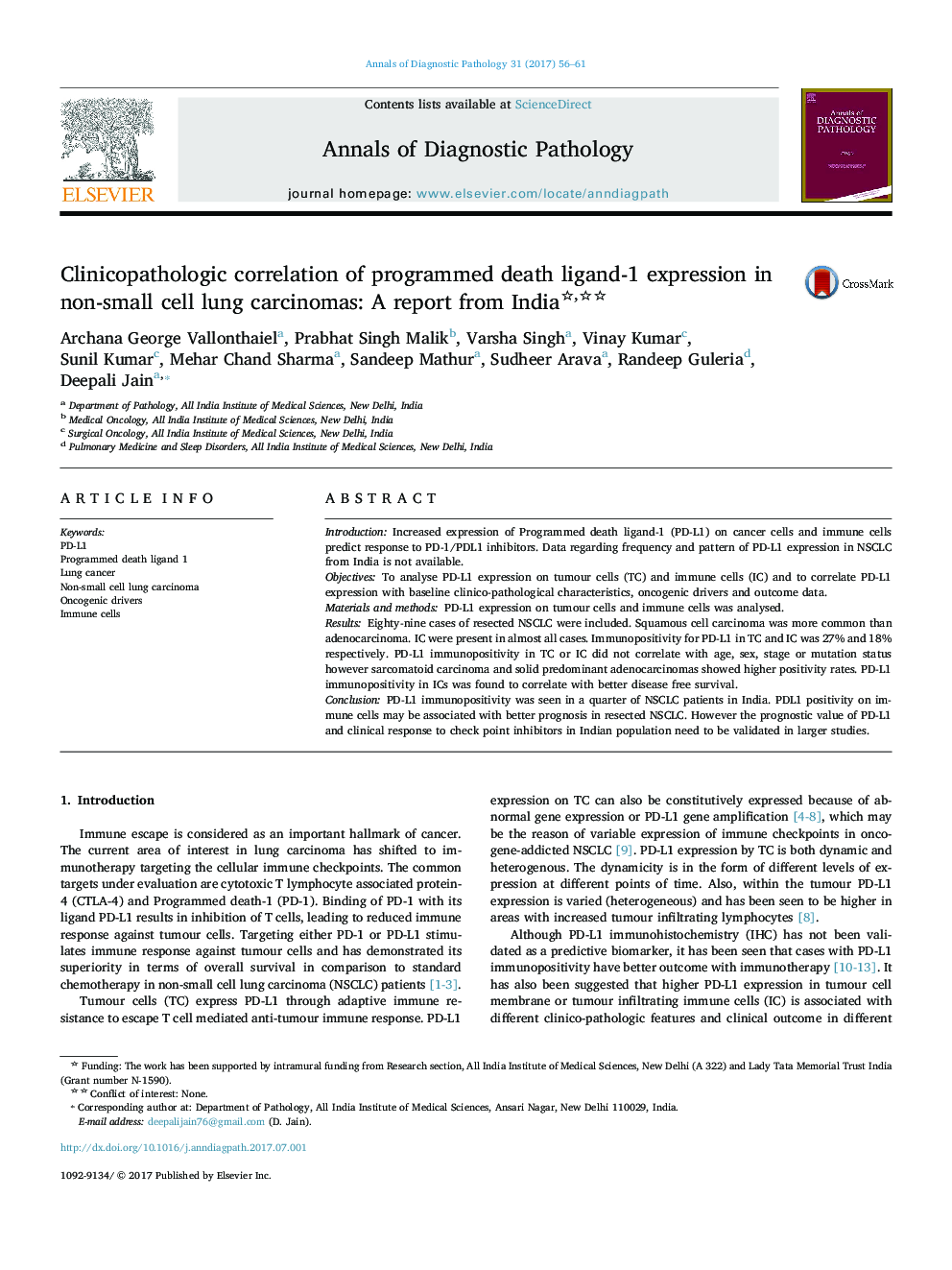| Article ID | Journal | Published Year | Pages | File Type |
|---|---|---|---|---|
| 5715868 | Annals of Diagnostic Pathology | 2017 | 6 Pages |
â¢PD-L1 immunopositivity is seen in a quarter of Non-small cell lung carcinoma cases.â¢Sarcomatoid carcinoma and solid adenocarcinomas show consistent PD-L1 positivity.â¢PD-L1 is expressed in both tumour cells and immune cells.â¢PD-L1 positivity in immune cells is significantly associated with better survival.â¢PD-L1 in immune cells may serve as a prognostic biomarker in lung cancer.
IntroductionIncreased expression of Programmed death ligand-1 (PD-L1) on cancer cells and immune cells predict response to PD-1/PDL1 inhibitors. Data regarding frequency and pattern of PD-L1 expression in NSCLC from India is not available.ObjectivesTo analyse PD-L1 expression on tumour cells (TC) and immune cells (IC) and to correlate PD-L1 expression with baseline clinico-pathological characteristics, oncogenic drivers and outcome data.Materials and methodsPD-L1 expression on tumour cells and immune cells was analysed.ResultsEighty-nine cases of resected NSCLC were included. Squamous cell carcinoma was more common than adenocarcinoma. IC were present in almost all cases. Immunopositivity for PD-L1 in TC and IC was 27% and 18% respectively. PD-L1 immunopositivity in TC or IC did not correlate with age, sex, stage or mutation status however sarcomatoid carcinoma and solid predominant adenocarcinomas showed higher positivity rates. PD-L1 immunopositivity in ICs was found to correlate with better disease free survival.ConclusionPD-L1 immunopositivity was seen in a quarter of NSCLC patients in India. PDL1 positivity on immune cells may be associated with better prognosis in resected NSCLC. However the prognostic value of PD-L1 and clinical response to check point inhibitors in Indian population need to be validated in larger studies.
